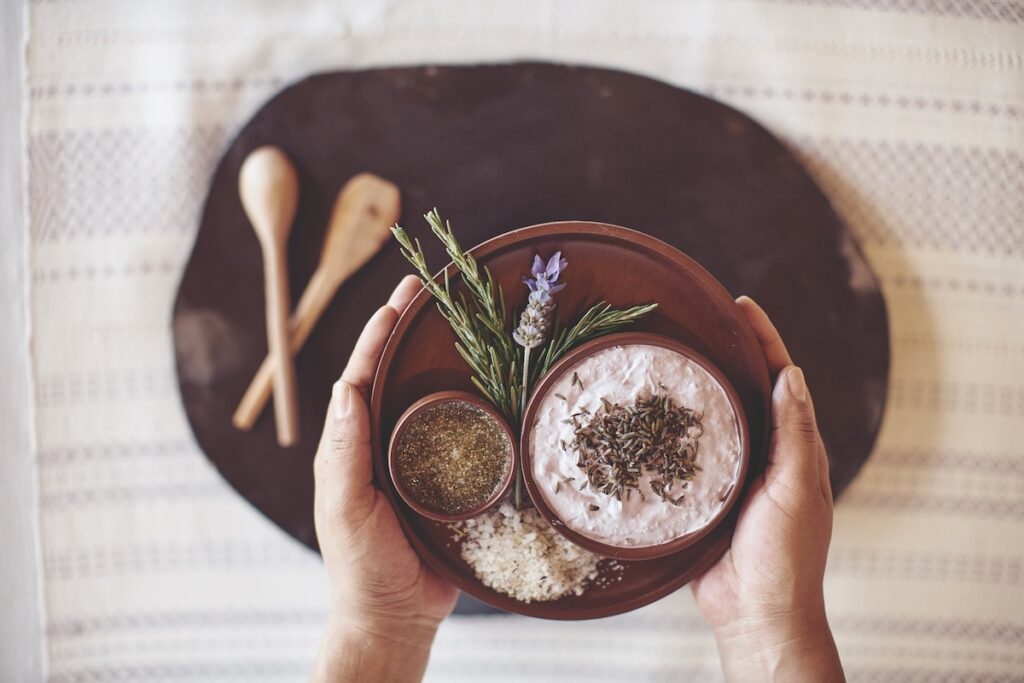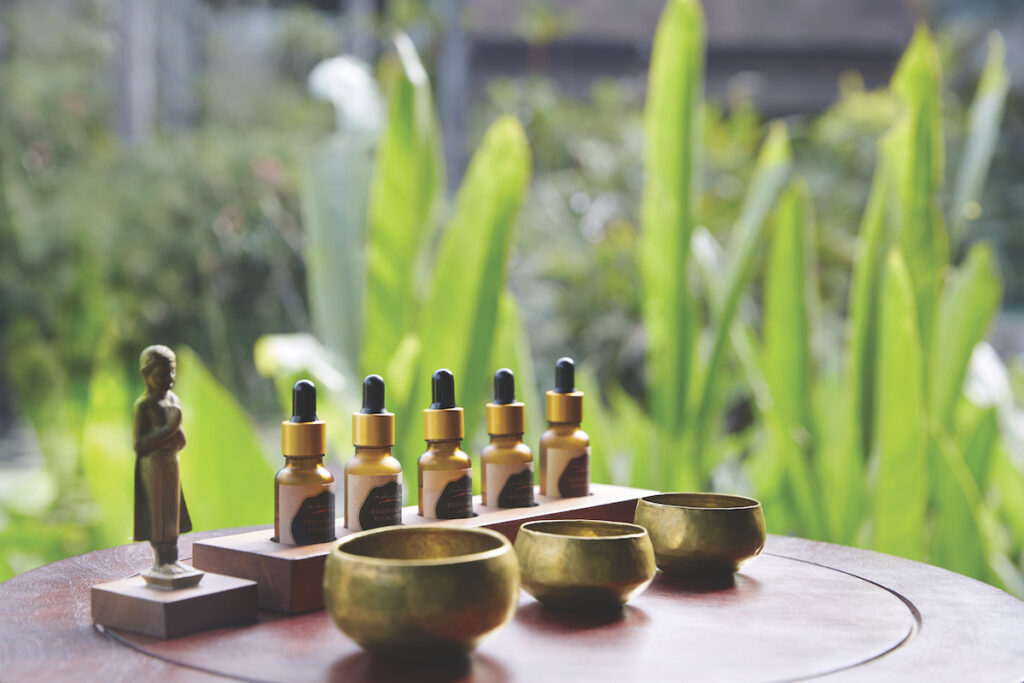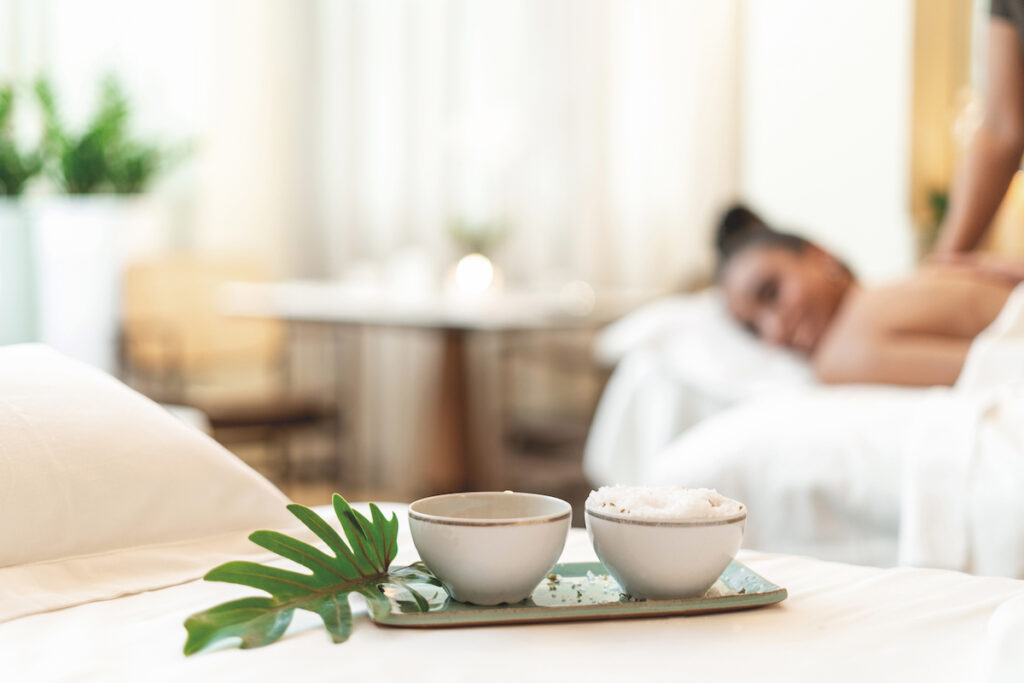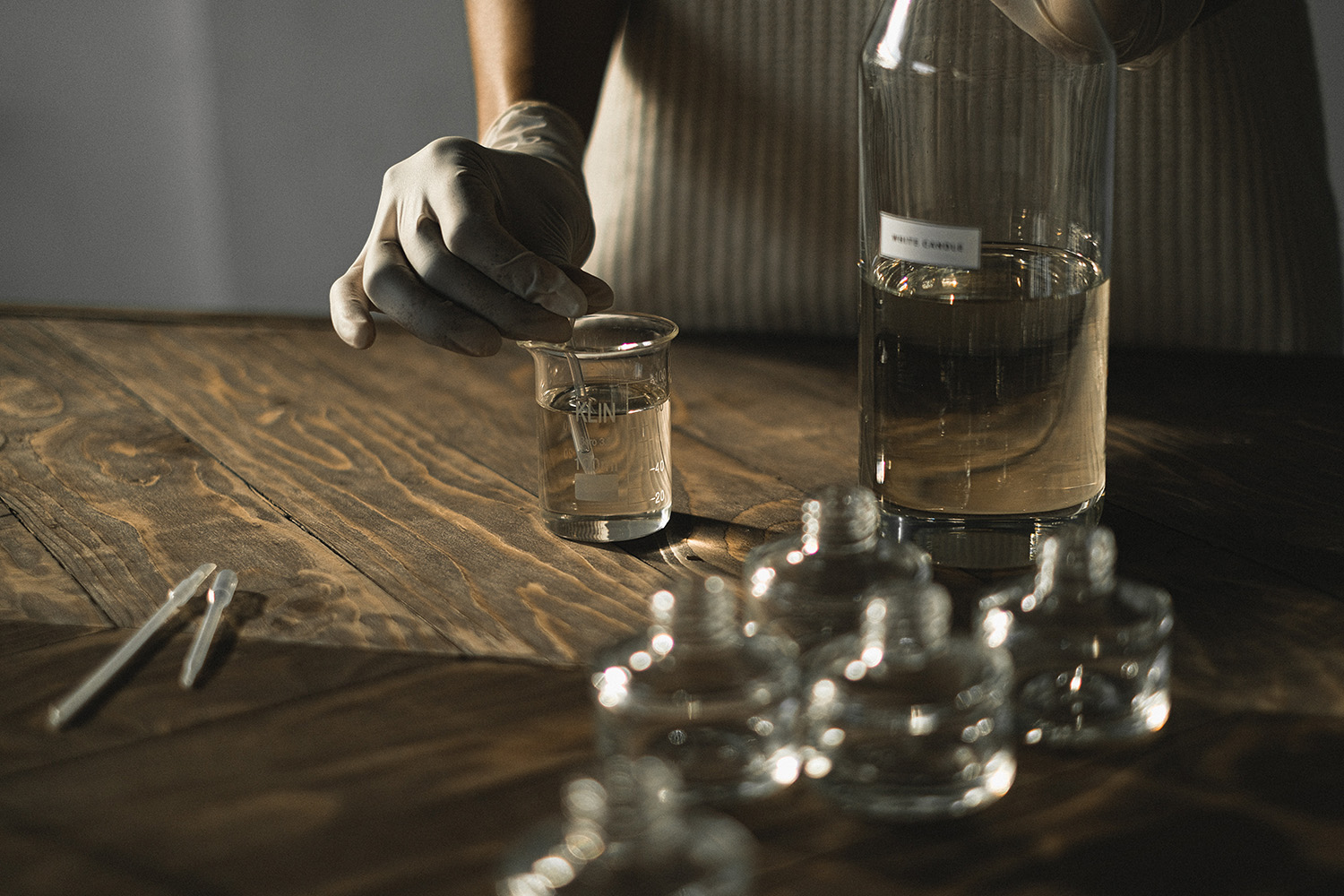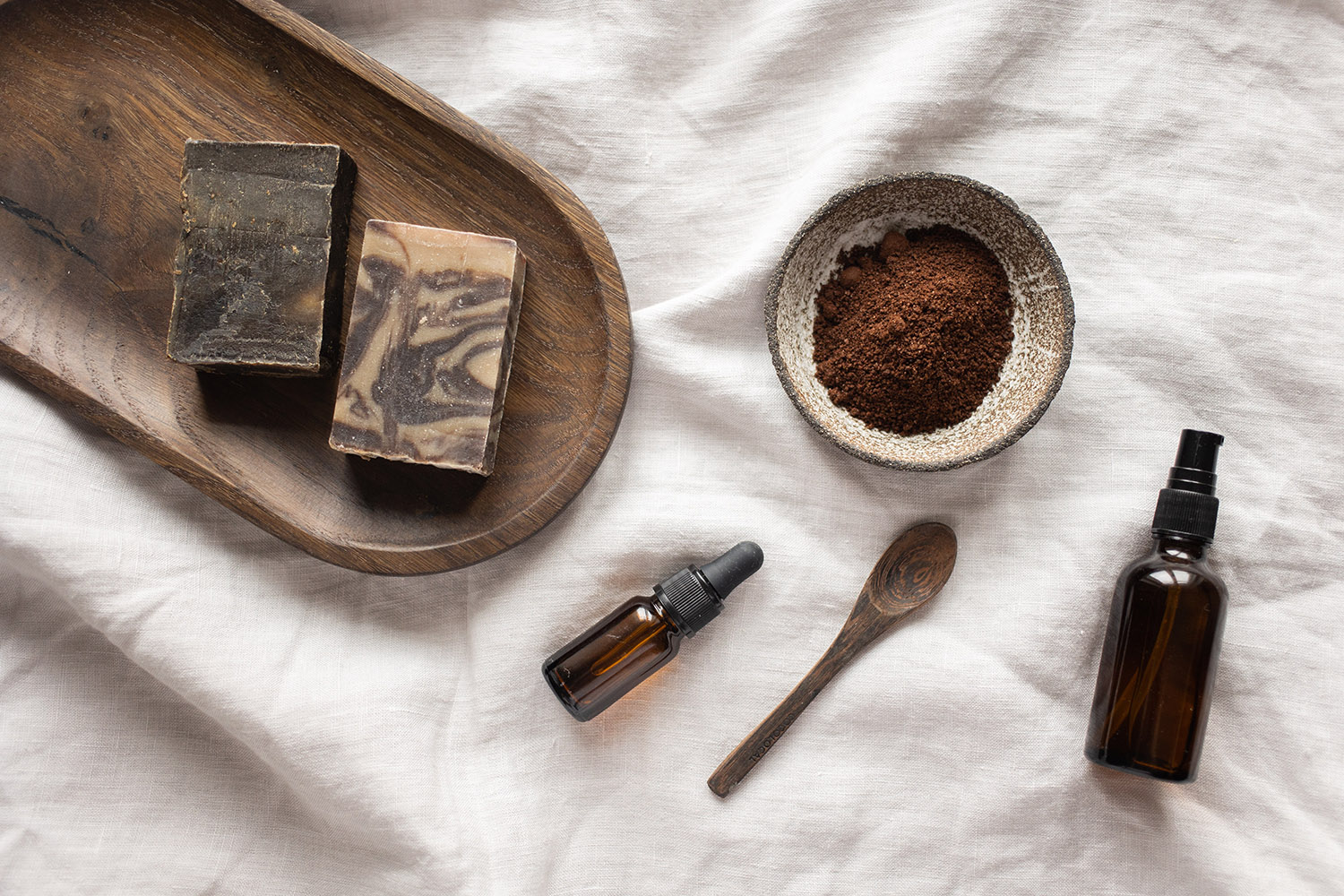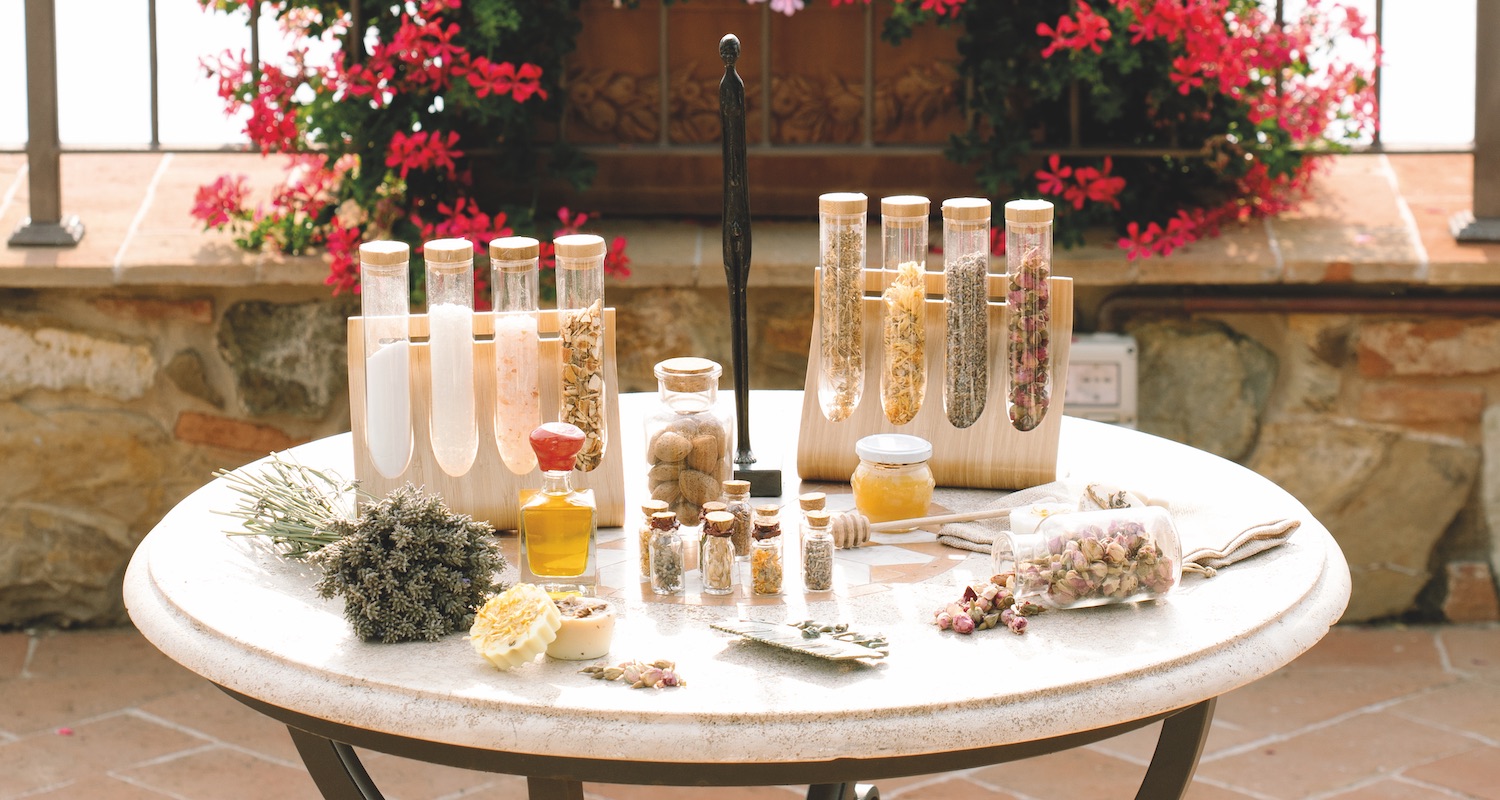
Trend Watch: This is what aromatherapy 2.0 can do
For a long time now, aromatherapy has been more than just using essential oils for spa treatments: the age-old tradition is being further developed by finding new ways to help people gain an improved sense of well-being. This is aromatherapy 2.0.
August 7, 2022
Slowly a scent starts to spread, recalling long forgotten memories, as it awakens sensations in our body and calms our mind. Essential oils can do many things. Humans have been using their powers for thousands of years: we use herbal fragrances for wellness and health purposes, in spas or for healing practices. They are equally in demand for at-home purposes.
Spas around the world, like the one at Casa de Sierra Nevada Hotel, are using the powerful properties of aromatherapy. © Belmond
The fact that spas are increasingly turning to essential oils is also due to the fact that new technologies are improving aromatherapy, personalizing it and thus make it more and more attractive. We reveal how it works.
A brief history of aromatherapy
Humans have been using essential oils, made from plants, for thousands of years. © Belmond
Incense, in the form of ritual as well as therapeutic use, go back to ancient civilizations and are the first precursors of working with fragrance. Officially, however, René-Maurice Gattefossé is considered the founder of aromatherapy. It was he who discovered – rather accidentally – the healing effects of lavender oil in 1910. His further research gave the starting signal for the medical, therapeutic as well as cosmetic work with essential oils. The term itself was first coined in 1937.
What is therapy with essential oils about?
From massage with oil to inhalation, aromatherapy is used in wellness as well as in the home. © Belmond
Essential oils are used both as pure room fragrances, as well as through inhalations or through skin contact, such as massages. Depending on the type of oil, it can affect your mood – to relieve anxiety or pain – evoke memories and affect your organs or organism. As a matter of fact, aromatherapy has long since found its way into our own homes – scented baths, massage oils or lamps and scented candles are just a few examples.
Aromatherapy 2.0
Now, aromatherapy is getting an upgrade: the products we use must be transparent about their ingredients, which should be sustainable and natural. There's also an effort to prove its effects scientifically, as the oils are often used as a non-drug alternative for the treatment of various ailments and diseases. For example, special aromatherapeutics have already been developed to help with pain, nausea and anxiety.
Today's aromatherapy is all about safe, natural and sustainable products, whose added value for our organism is scientifically proven. © Anna Shvets
Scents as memory aids
Everyone knows about the connection between smell and memory, which has been underlined by several studies. An important new area is therefore the use of essential oils in connection with neurological diseases such as Alzheimer's or dementia. For example, scent therapy is said to reinforce the strength of short-term memory.
Functional scents and artificial intelligence
In addition, so-called functional scents are used to positively influence the brain. The effect of various smells is intensively researched. That's how we know, for instance, that coffee can increase our analytical abilities and that lemon can boost our motivation. In the wellness sector, essential oils have been used to positively influence the mood of patients for years, both in public areas and during treatments. Now, functional fragrances are being paried with AI (artificial intelligence): sensors attached to the body during therapy to measure bodily responses. Depending on how relaxed or stressed the person is, the AI will release the appropriate scent sequence into the treatment room.
The scent of coffee acts like a placebo on our brain, boosting our analytical performance. © Monstera
In conclusion: The possibilities of therapy with essential oils have already multiplied since being official discovered a century ago. And the latest developments show that aromatherapy doesn't shy away from modern technologies – and for the time being, it has come to stay.
More wellness trends: Thalasso - The Power of Water

